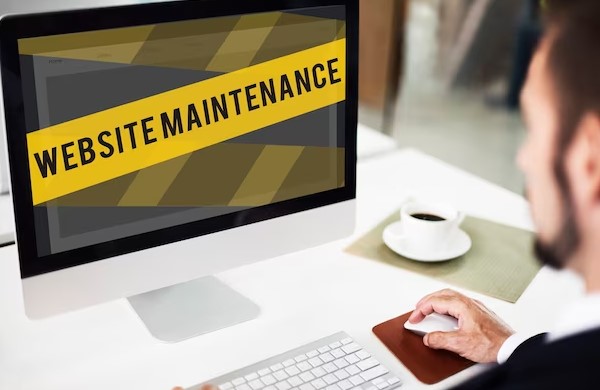About two-thirds of all small businesses in the U.S. have a website. You’ve done well to be in this group. A website is your business’s gateway to the digital world and millions of online shoppers.
However, when was the last time you updated or even repaired your website? Many small business owners rarely bother to invest in their websites after the initial launch, unless it breaks down.
Yet, small business website maintenance is the key to having a site that performs as expected and delivers the best results. If you’d like to learn a few basics about maintaining a company website, you’re in the right place.
Let’s start tightening the bolts and screws:
1. Install All Updates on Schedule
Do you have a pending update on your smartphone or computer? If you’re a busy person, it’s understandable that you could reschedule it so that it doesn’t interrupt your work.
Here’s the thing, though. Pushing those updates to another date increases your device’s vulnerability to attacks. The same applies to websites. In fact, the stakes are much higher when it comes to your business website.
About 50 percent of all cyberattacks target small business websites. Failing to update your website’s plugins, content management systems, and other applications when their updates are available is akin to leaving the door open for the attackers. Most of these updates are security patches for known vulnerabilities.
As such, be sure to check for updates regularly and install them immediately.
2. Updating Content Is Part of Website Maintenance
Your website isn’t made up of the theme, CMS, plugins, and other technical features alone. While these are key drivers, the content on your website is just as important.
Content gets outdated. As new information emerges, it’s possible that you have content that’s no longer accurate. As part of your website maintenance practice, go through old content and update it accordingly.
This is good for SEO and helps ensure you’re giving your users the best experience.
3. Redesign Your Website from Time to Time
Redesigning a website isn’t something that typically features on a small business owner’s to-do list. If it’s not broken, why fix it?
Well, website design has a direct impact on the user experience. You might have launched your website with an amazing design, but after a couple of years, it risks becoming an eyesore to your users.

When you redesign a website, you not only keep it looking modern but also ensure it evolves along with consumers changing preferences.
4. Upgrade Your Website Hosting
Your web host keeps your site online and enables you to store and deploy content. When a website is new and has a handful of users, even the cheapest hosting package can get the job done. But as usage and the need for fast-loading pages increases, your hosting plan can become a limiting factor.
As part of website maintenance, it’s prudent to look at your hosting package or service provider and determine whether they’re meeting your current needs. If not, upgrade the package or move the website to a new hosting provider with better performance.
Don’t Neglect Small Business Website Maintenance
Your website is a machine, and like all machines, it needs to be maintained to perform optimally. Put these small business website maintenance best practices to use and you’d have covered all the key bases as far as maintaining your website is concerned.




